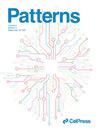导航COP16的数字序列信息结果:研究人员在实践中需要做什么。
IF 6.7
Q1 COMPUTER SCIENCE, ARTIFICIAL INTELLIGENCE
引用次数: 0
摘要
联合国生物多样性公约通过了分享可公开获得的基因序列数据(也称为数字序列信息(DSI))惠益的新规则。在本意见中,作者描述了研究人员需要意识到的关键要素,解决了现实生活中的问题,并解释了这些规则对研究和开发的实际影响。本文章由计算机程序翻译,如有差异,请以英文原文为准。
Navigating COP16's digital sequence information outcomes: What researchers need to do in practice.
The UN Convention on Biological Diversity adopted new rules for sharing benefits from publicly available genetic sequence data, also known as digital sequence information (DSI). In this Opinion, the authors describe the key elements researchers need to be aware of, address real-life questions, and explain the practical implications of these rules for research and development.
求助全文
通过发布文献求助,成功后即可免费获取论文全文。
去求助
来源期刊

Patterns
Decision Sciences-Decision Sciences (all)
CiteScore
10.60
自引率
4.60%
发文量
153
审稿时长
19 weeks
期刊介绍:
 求助内容:
求助内容: 应助结果提醒方式:
应助结果提醒方式:


